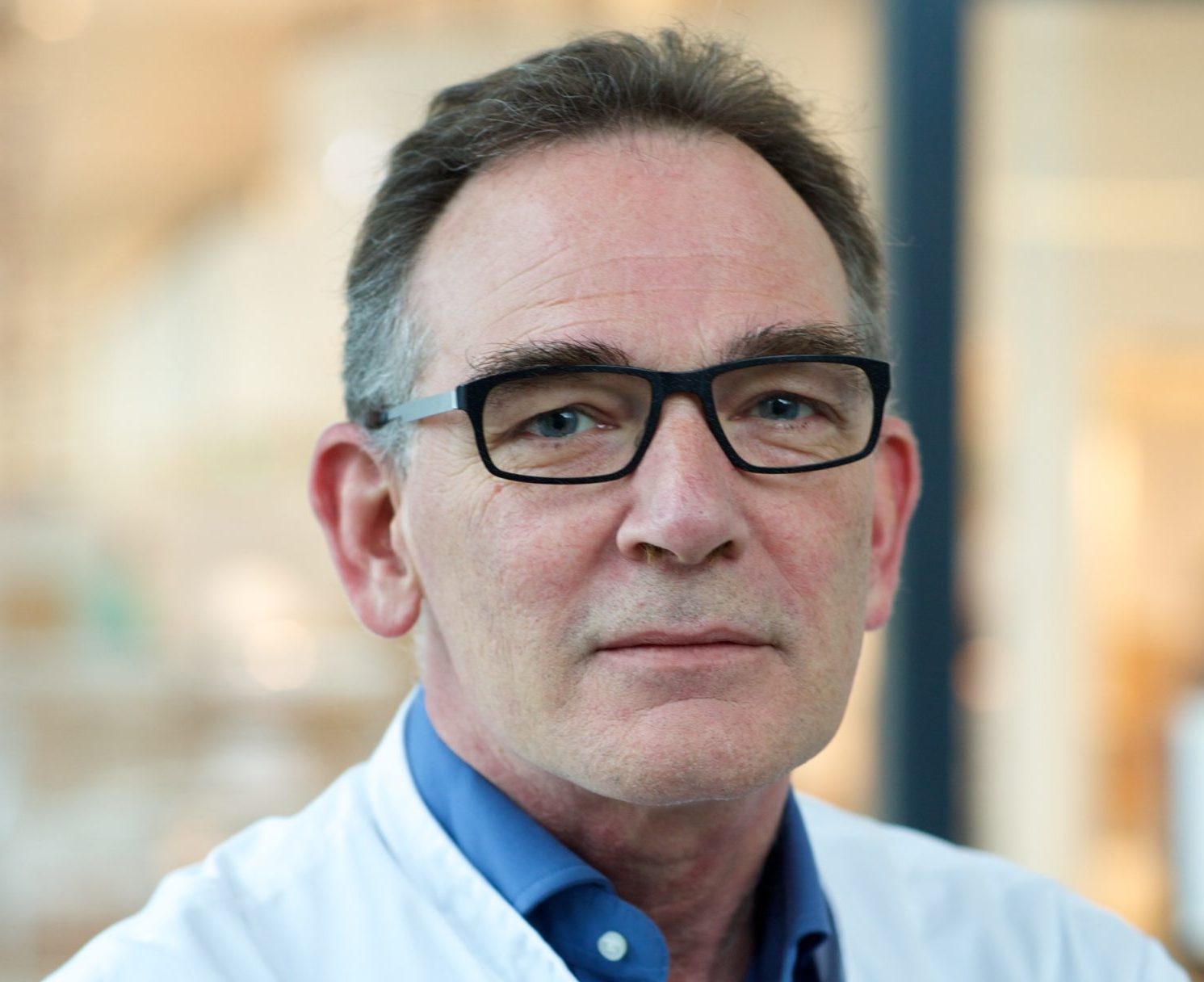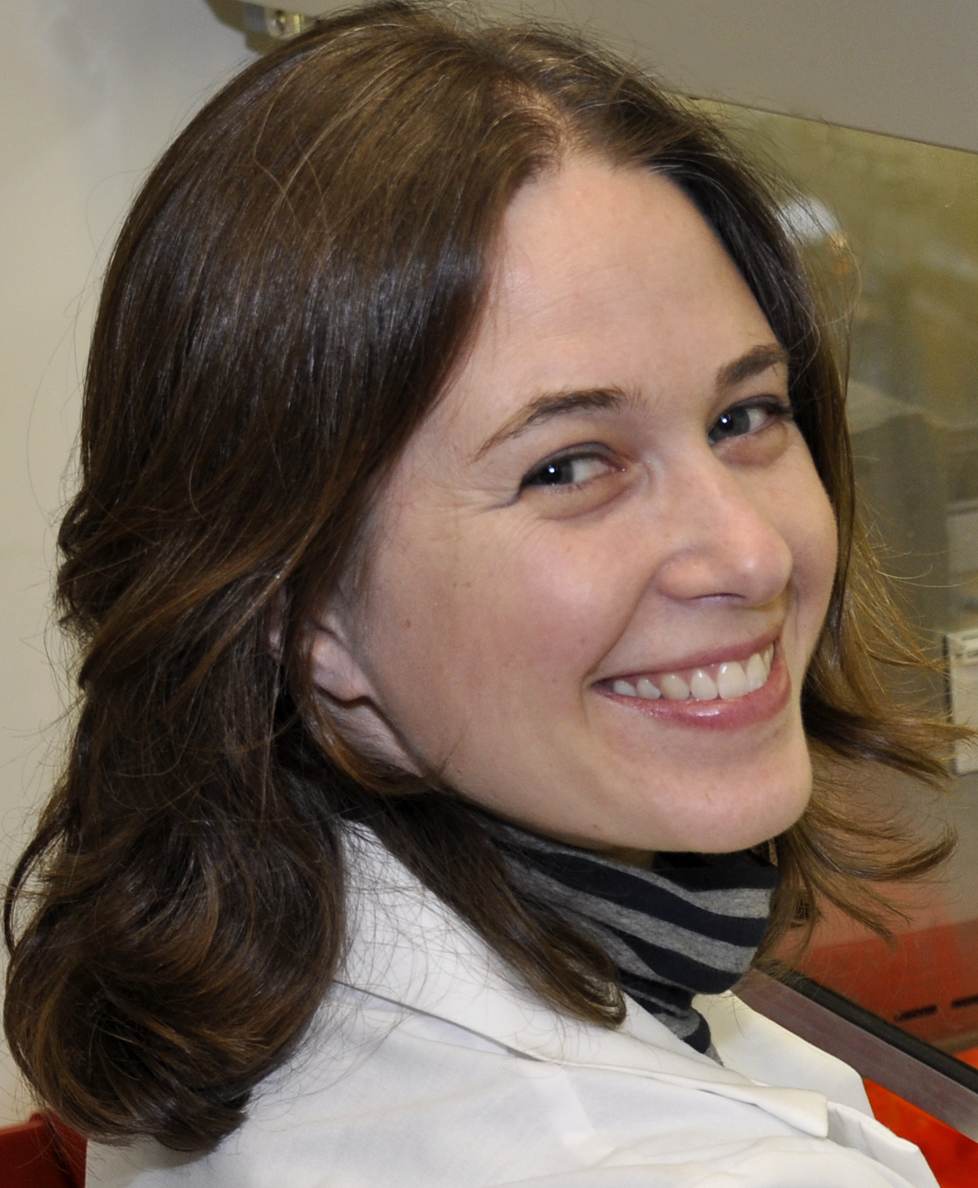touchPANEL DISCUSSION Novel targeted therapies for NSCLC: Exploring HER2 dysregulation
Watch a panel of experts discuss the latest clinical research in HER2 dysregulation and potential HER2-targeted therapies in NSCLC.

Prof. Egbert Smit
Netherlands Cancer Institute, Antoni van Leeuwenhoek Hospital, Amsterdam, Netherlands
CHAIR
Panelists:
Introduction
Chair Prof. Egbert Smit introduces the expert panel and agenda for this discussion on targeting HER2 dysregulation in NSCLC.
view bio and disclosures 1/4 Next ChapterHow is HER2 dysregulated and what is its clinical relevance in patients with NSCLC?
The panel share their knowledge of the dysregulation of HER2 in patients with NSCLC (as compared with other solid tumours) and perspectives on the clinical relevance in terms of clinical outcomes.
view bio and disclosures 2/4 Next ChapterWhat are the current challenges in treating patients with HER2-mutant NSCLC?
The panel consider whether guideline recommendations for patients with advanced NSCLC should be updated to include genetic testing for HER2 mutations and, if so, how and at what stage.
view bio and disclosures 3/4 Next ChapterWhat are the latest data on HER2-targeted therapies for patients with HER2-mutant NSCLC?
The panel review data for emerging HER2-targeted therapies (including antibody-drug conjugates, tyrosine kinase inhibitors and combinations) that are yet to be approved, and consider their potential impact on the management of patients with HER2-mutant NSCLC.
view bio and disclosures 4/4 Take CE/CME TestOverview & Learning Objectives
Overview
In this activity, a panel of experts discuss HER2 dysregulation as an emerging target for novel therapies in NSCLC. The panel share their perspectives on the clinical relevance of HER2 dysregulation, current challenges with treatment, and HER2-targeted therapies, in patients with HER2-mutant advanced NSCLC.
This activity is jointly provided by USF Health and touchIME.
Target Audience
This activity has been designed to meet the educational needs of oncologists, including lung cancer specialists, and pathologists involved in the management of patients with NSCLC.
Disclosures
All individuals in a position to influence content have disclosed to USF Health any financial relationship with an ineligible organization. USF Health has reviewed and mitigated all relevant financial relationships related to the content of the activity. The relevant relationships are listed below. All individuals not listed have no relevant financial relationships.
Faculty
Prof. Egbert Smit discloses (all fees to institution): Advisory board or panel fees from AstraZeneca, Bayer, Boehringer Ingelheim, Bristol Myers Squibb, Daiichi Sankyo, Eli Lilly, Merck Sharp & Dohme, Roche Genentech and Sanofi; Consultant fees from Eli Lilly; and Grants/research support from AstraZeneca, Bristol Myers Squibb, Daiichi Sankyo and Roche Genentech.
Dr Jarushka Naidoo discloses: Advisory board or panel fees from AstraZeneca, Bristol Myers Squibb, Daiichi Sankyo, Kaleido Biosciences, Merck, Pfizer, Roche Genentech and Takeda; and Grants/research support from AstraZeneca and Merck.
Dr Katerina Politi discloses: Consultancy fees from Halda Therapeutics; Grants/research support from AstraZeneca, Boehringer Ingelheim, Symphogen and Roche; and Other financial/material support (royalties, patent, etc.) as co-inventor on a patent licensed from MSKCC to MolecularMD.
Content reviewer
Ryan N. Bookout, PharmD, BCOP, FHOPA has no financial interests/relationships or affiliations in relation to this activity.
Touch Medical Director
Christina Mackins-Crabtree, PhD, CMPP has no financial interests/relationships or affiliations in relation to this activity.
USF Health Office of Continuing Professional Development and touchIME staff have no financial interests/relationships or affiliations in relation to this activity.
Requirements for Successful Completion
In order to receive credit for this activity, participants must review the content and complete the post-test and evaluation form. Statements of credit are awarded upon successful completion of the post-test and evaluation form.
If you have questions regarding credit please contact cpdsupport@usf.edu
Accreditations
Physicians
This activity has been planned and implemented in accordance with the accreditation requirements and policies of the Accreditation Council for Continuing Medical Education (ACCME) through a joint providership of USF Health and touchIME. USF Health is accredited by the ACCME to provide continuing medical education for physicians.
USF Health designates this enduring material for a maximum of 0.75 AMA PRA Category 1 CreditTM. Physicians should claim only the credit commensurate with the extent of their participation in the activity.
The European Union of Medical Specialists (UEMS) – European Accreditation Council for Continuing Medical Education (EACCME) has an agreement of mutual recognition of continuing medical education (CME) credit with the American Medical Association (AMA). European physicians interested in converting AMA PRA Category 1 CreditTM into European CME credit (ECMEC) should contact the UEMS (www.uems.eu)
Advanced Practice Providers
Physician Assistants may claim a maximum of 0.75 Category 1 credits for completing this activity. NCCPA accepts AMA PRA Category 1 CreditTM from organizations accredited by ACCME or a recognized state medical society.
The AANPCP accepts certificates of participation for educational activities approved for AMA PRA Category 1 CreditTM by ACCME-accredited providers. APRNs who participate will receive a certificate of completion commensurate with the extent of their participation.
Date of original release: 28 October 2021. Date credits expire: 28 October 2022.
If you have any questions regarding credit please contact cpdsupport@usf.edu
Learning Objectives
After watching this activity, participants should be better able to:
- Describe the various HER2 alterations in NSCLC and the potential role of HER2 as a therapeutic target
- Discuss current treatment approaches for patients with HER2-mutant NSCLC and associated survival outcomes
- Recall the efficacy and safety data for novel HER2-targeted therapies for HER2-mutant NSCLC
Faculty & Disclosures

Prof. Egbert Smit
Netherlands Cancer Institute, Antoni van Leeuwenhoek Hospital, Amsterdam, Netherlands
Egbert Smit is Professor of Pulmonary Medicine (with an emphasis on pulmonary oncology) at the Netherlands Cancer Institute, Department of Thoracic Oncology and the Department of Pulmonary Diseases of the Vrije Universiteit Medical Centre in Amsterdam, Netherlands.
Since 1986, he has been involved in basic research and clinical trials ranging from chemoprevention of lung cancer to treatment of advanced non-small and small cell lung cancer (NSCLC and SCLC). He has been a principal investigator for several national and international phase II and III trials.
Over the past decade, the focus of his research has been on translational oncology and molecular imaging. These research activities have resulted in over 300 publications in peer-reviewed journals and chapters in books.
Prof. Smit is active in several national and international societies, such as the International Association for the Study of Lung Cancer (IASLC), the European Organization for Research and Treatment of Cancer (EORTC), the American Society for Clinical Oncology (ASCO) and the American Association for Cancer Research (AACR). He served as the chair of a multidisciplinary task force for the development of clinical guidelines in SCLC in The Netherlands. Since 2011, he has been a member of the European Society for Medical Oncology (ESMO) Lung and other Thoracic Tumours Faculty Group.
He is on the review board of several major oncology journals and has co-organized several national meetings on thoracic oncology and (post) graduate teaching courses.
Prof. Egbert Smit discloses (all fees to institution): Advisory board or panel fees from AstraZeneca, Bayer, Boehringer Ingelheim, Bristol Myers Squibb, Daiichi Sankyo, Eli Lilly, Merck Sharp & Dohme, Roche Genentech and Sanofi; Consultant fees from Eli Lilly; and Grants/research support from AstraZeneca, Bristol Myers Squibb, Daiichi Sankyo and Roche Genentech.

Dr Jarushka Naidoo
Beaumont Hospital, Dublin, Ireland
Dr Jarushka Naidoo is a Consultant Medical Oncologist at Beaumont Hospital/Royal College of Physicians of Ireland; and an Adjunct Assistant Professor of Oncology at the Sidney Kimmel Comprehensive Cancer Center and Bloomberg-Kimmel Center for Cancer Immunotherapy, at Johns Hopkins University, in Baltimore, MD, USA.
Dr Naidoo graduated with her medical degree (MB BCh BAO) from Trinity College Dublin, and completed both internal medicine training and a medical oncology fellowship through the Royal College of Physicians of Ireland. She then completed an awarded advanced fellowship at Memorial Sloan Kettering Cancer Center (New York, NY, USA), and joined the faculty at Johns Hopkins University (Baltimore, MD, USA) in 2015. At Johns Hopkins, she led a portfolio of clinical trials and translational studies focused on immunotherapy for lung cancer and immune-related toxicity. She founded and has co-chaired the multidisciplinary Johns Hopkins Immune-related Toxicity Team since 2016. Dr Naidoo currently leads investigator-initiated trials for patients with lung cancer, specifically for those with stage III NSCLC and those with CNS metastases. She is a leader in the field of immune-related toxicity, having published the first comprehensive analysis of immune-related pneumonitis (Best of J Clin Oncol 2017), bullous pemphigoid (Best of Cancer Immunol Res 2016), and inflammatory arthritis (Ann Rheum Dis 2016). She is the Chair of the Immunotherapy Subcommittee of the US NRG Clinical Trials Cooperative Group, and develops the ASCO, NCCN and SITC Immune-Related Toxicity Guideline Panels. She is the recipient of several grants and awards, including a US NIH KL2 Clinical Scholar Award, and a Lung Cancer Foundation of America/IASLC Young Investigator Award on biomarkers of immunotherapy response and toxicity.
Since her return to Ireland (October 2020), she serves as the Chair of the Lung Cancer Disease-specific subgroup (DSSG) of Cancer Trials Ireland, and the Founder and Chair of the Irish national lung cancer research group, the Irish Lung Cancer Alliance.
Dr Jarushka Naidoo discloses: Advisory board or panel fees from AstraZeneca, Bristol Myers Squibb, Daiichi Sankyo, Kaleido Biosciences, Merck, Pfizer, Roche Genentech and Takeda; and Grants/research support from AstraZeneca and Merck.

Dr Katerina Politi
Yale School of Medicine, New Haven, CT, USA
Katerina Politi studied Biology at the University of Pavia in Italy. She then moved to New York, USA, where she obtained her PhD in Genetics and Development working with Argiris Efstratiadis at Columbia University. Following graduate school, she joined Harold Varmus’s lab at Memorial Sloan-Kettering Cancer Center and began her work on the molecular basis of lung cancer. She continues this work at Yale as an Associate Professor in the Departments of Pathology and Internal Medicine (in the Section of Medical Oncology). Her laboratory is focused on studying the biology of lung cancer and on uncovering mechanisms of resistance to targeted therapies and immunotherapies in this disease. At the Yale Cancer Center, Dr Politi is a co-leader of the Cancer Signaling Networks Research Program and the Scientific Director of the Center for Thoracic Cancers.
Dr Katerina Politi discloses: Consultancy fees from Halda Therapeutics; Grants/research support from AstraZeneca, Boehringer Ingelheim, Symphogen and Roche; and Other financial/material support (royalties, patent, etc.) as co-inventor on a patent licensed from MSKCC to MolecularMD.

Register to touchONCOLOGY for FREE
- Peer-reviewed journals and expert opinions
- Interactive CME and e-learning modules
- Video conference highlights

